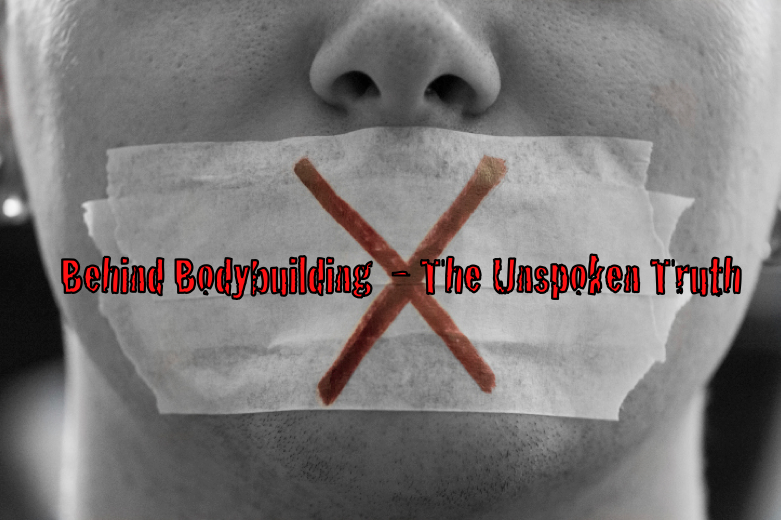Behind Bodybuilding: The Unspoken Truth

Would you ever think that the fittest, most aesthetically appealing people in the world can suffer from eating disorders and body dysmorphia?
When one thinks of an eating disorder, one initially thinks of anorexia and bulimia. According to the National Eating Disorder Association (NEDA), “Eating disorders—such as anorexia, bulimia, and binge eating disorder—include extreme emotions, attitudes, and behaviors surrounding weight and food issues. Eating disorders are serious emotional and physical problems that can have life-threatening consequences.”
Binge eating is one of the most common disorders not only in the fitness industry but also in the rest of the weight-conscious world. With the weight-loss industry growing rapidly and the total U.S. weight-loss market expected to grow 4.5 percent in 2013 to a value of $66.5 billion,1 the rise of binge eating is linked to the rise of fad diets and diet products. These restrictive diets can cause people to fall into the diet/binge cycle. Food is also commonly used as a coping mechanism because it is one of the easiest, fastest, and cheapest forms of “drug.”

Many various disorders are common in the fitness industry, such as obsessive calorie counting or guilt from eating certain foods. Eating disorders can exist before competing, and some can develop during prep. You have to become extremely calorie conscious and avoid “cheat” foods. But one of the most common disorders in bodybuilding and fitness is the cycle of extreme dieting and binge eating. The most prevalent reason for this disorder is the extreme dieting from prepping for a show or photo shoot. When going to such an extreme with anything, the pendulum is going to swing the other way. This is why you need to be able to prepare yourself and slowly transition your mind and body back into a balanced plan after your prep is over.
The cycle can be very draining but hard to stop. After a show, you may feel out of control and go crazy with the eating. But it’s not just the food—it’s the domino effect that happens. You may feel guilty the next day or your appetite may be out of control from overindulging. This can keep the cycle continuing, and it gets more and more difficult to stop. A binge can turn into a whole day, that whole day into a week, then that week into a month. The food is almost like a drug, and it can turn into an addictive behavior. Once you have gotten further away from the results of all your hard work, it becomes even more difficult mentally to stop and go back to a balanced way of eating and exercising. This is why many choose to compete in another show. It gives them a reason to be extreme the other way, forcing them to stop and regain control of their bingeing. It also gives them a feeling of being “safe,” knowing that they have to be ready by a certain date.

This mental and physical behavior is extremely common yet neither spoken about nor addressed in the industry. About 42 percent of female athletes competing in aesthetic sports demonstrate eating disordered behaviors.2 Disordered eating among athletes within the bodybuilding world may not necessarily be life threatening, but it can be extremely emotionally, mentally, and physically exhausting. Whatever the variation of disorder, several tools can help prevent falling into disordered eating.
There are some examples of simple steps you can take to transition out of the extreme cycle:
1. Make a post-show meal plan. Planning is key. Having some sort of guideline to help gradually increase your calories after the show will help in the transition. This will help prevent any possible sudden rebound from coming off an extreme program.
2. Focus on inner health instead of outside appearance. When extreme dieting, certain nutrients may be left out of the diet to save on calories, carbs, or sugars. Once you start eating nutrients that may have been absent in your contest prep, you will notice your body will become responsive and balance out. Your cravings will slowly go away, and this will help with binge prevention.
3. Step off the scale. Some of us may tend to get a little obsessive on the scale when trying to diet down or in the off-season. It’s just a number, and even though you may feel a certain way, it’s guaranteed that others aren’t seeing or thinking what you are. It’s all perception. That number can mess with your head, bringing you back to the mental games that got you there in the first place.
4. Know the difference between emotional hunger and physical hunger. Physical hunger will come on gradually, is a need that can be met by different types of foods, and will leave you feeling satisfied after eating. Emotional hunger comes on suddenly, causes specific cravings, and can lead to feelings of guilt afterward. It can be hard to stop that kind of hunger once you are feeling a certain emotion. The depression-like feelings of seeing your body change after a contest can creep up and make you want to eat more. Learning to identify and make a distinct separation between the two types of hunger will help you to make better decisions.
5. Know your triggers. Triggers are different for everyone. Emotional “out of control” feelings can be a general trigger after a show. But more specifically, what are the exact things or feelings that make you choose to binge? For example, lack of sleep is a common trigger. When your mind is unclear and foggy, you can make bad choices or crave sugar and carbs. Stress is another common trigger. Any kind of personal life stress can bring you to use extreme food patterns as a release.
6. Lose the “feast or famine” mentality. Letting go of an “all or nothing” mentality will allow you to live a life where you can eat healthfully but not be extreme. This is done through methods such as listening to your body, eating when you are hungry, and not calculating your calories. We become programmed to calculating macronutrients in our meals and might feel guilty if we go slightly off. Once you start to fuel your body by listening to it, you will notice your body will balance out and your lifestyle will not be so exhausting. Surprisingly, you will notice how much easier it will be to maintain a healthy physique year round.
With time and practice, these tools can help bring you to a place of balance in between shows. Remember, fitness and competing is supposed to be fun, not a draining cycle. Know that if you happen to fall into extreme eating patterns, you can break the cycle and overcome it with the correct tools or therapy.
Brett Bauer
Body Image and Corrective Eating Coach
FB: BrettBauerFitness
IG: @Brettbauerfitness
www.brettbauer.com
1. Marketdata Enterprises, John LaRosa, December 2012.
2. The Renfrew Center Foundation for Eating Disorders, Eating Disorders 101 Guide: A Summary of Issues, Statistics and Resources, 2003.

